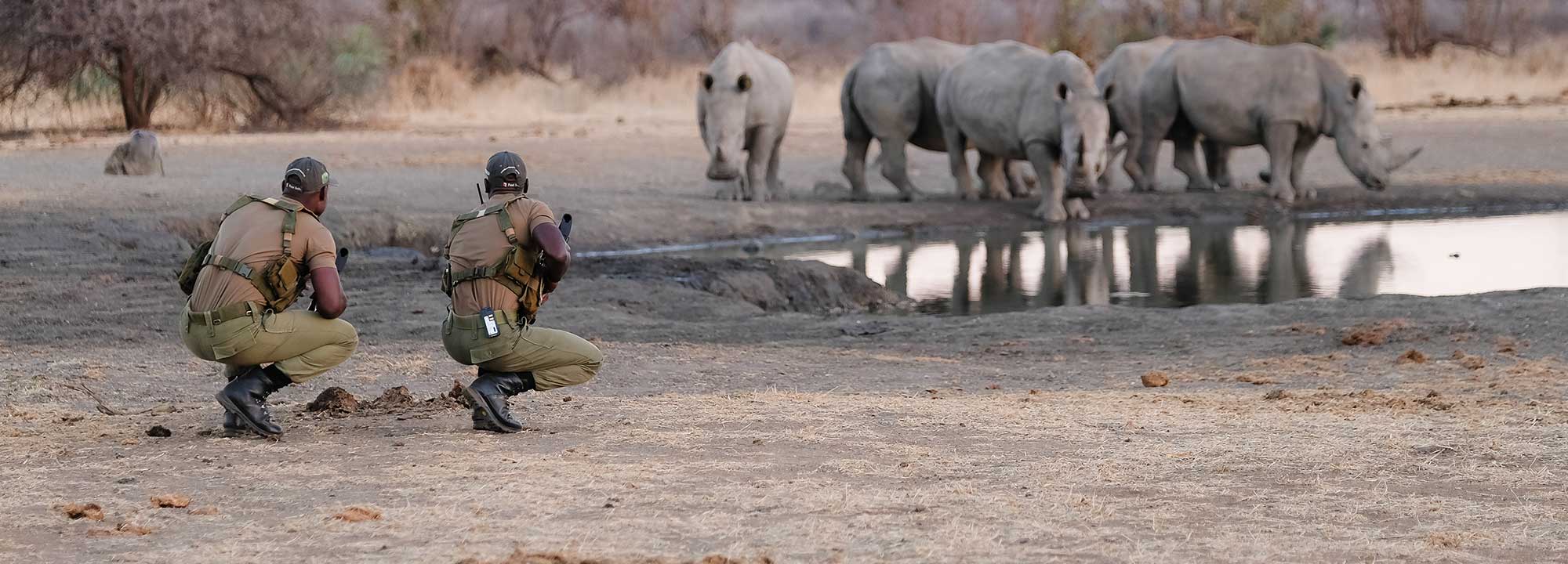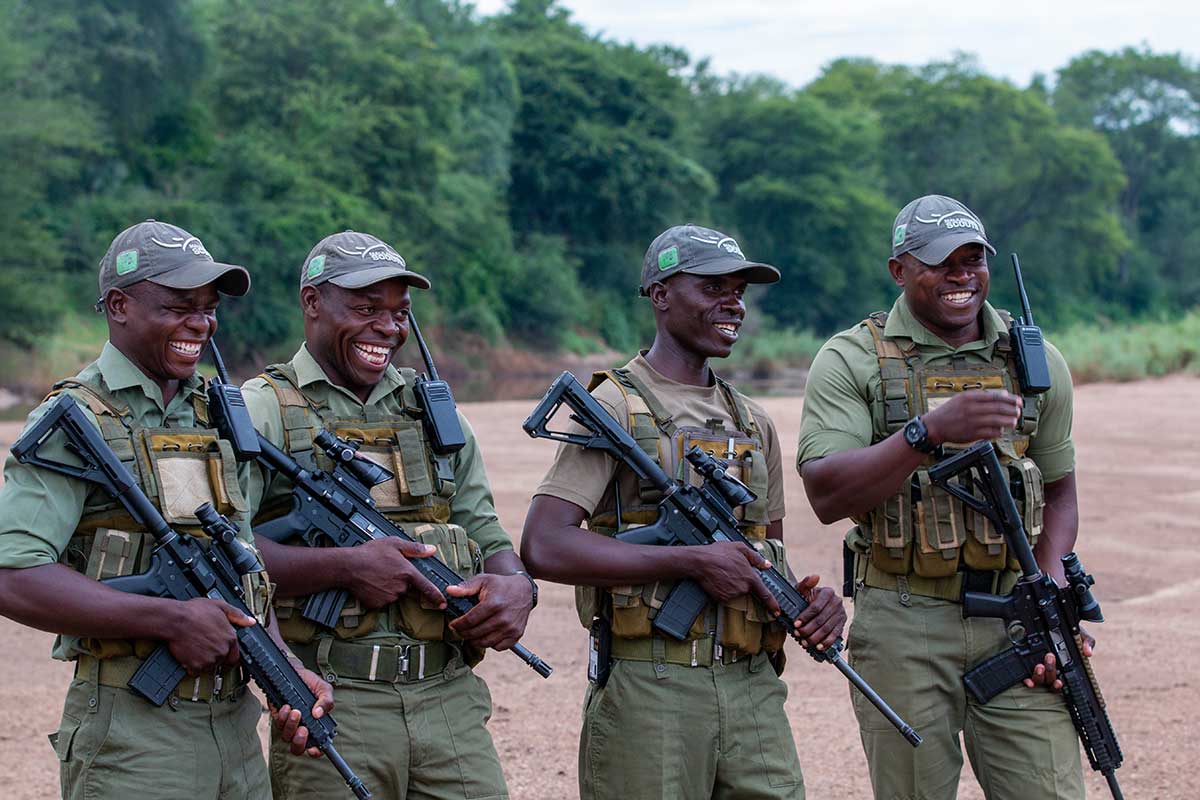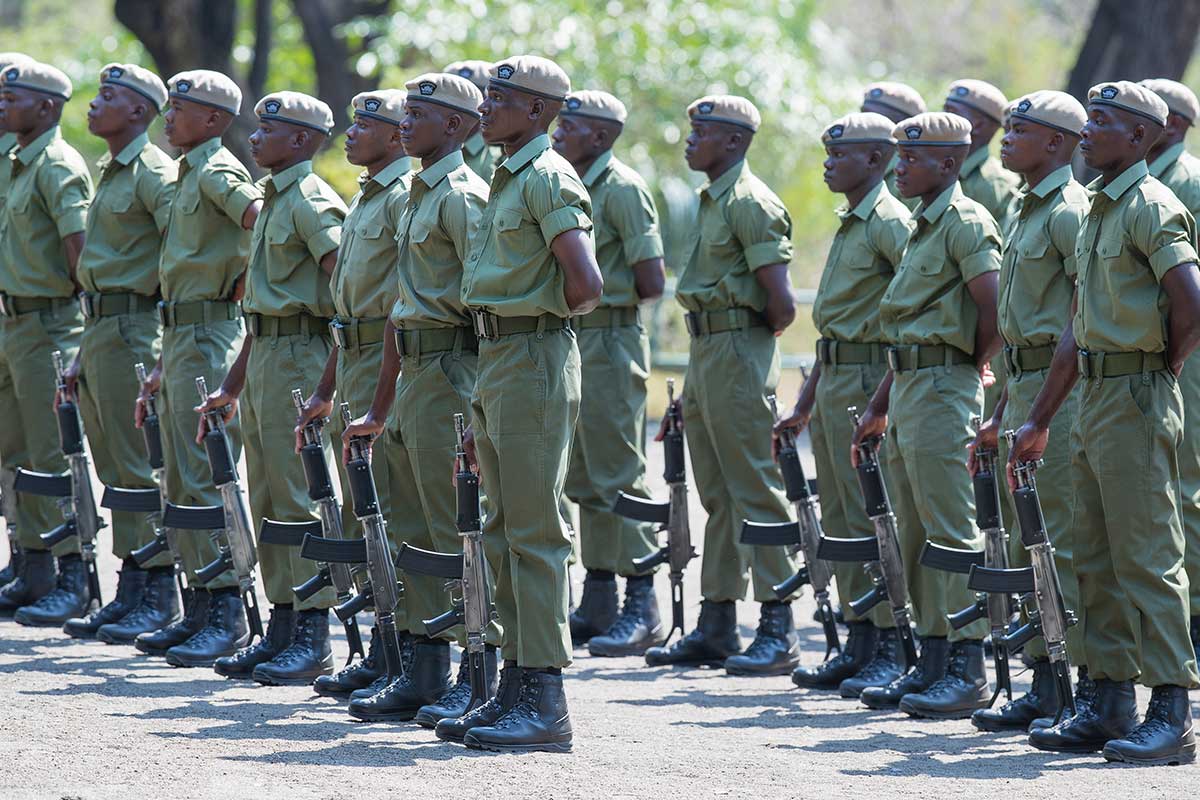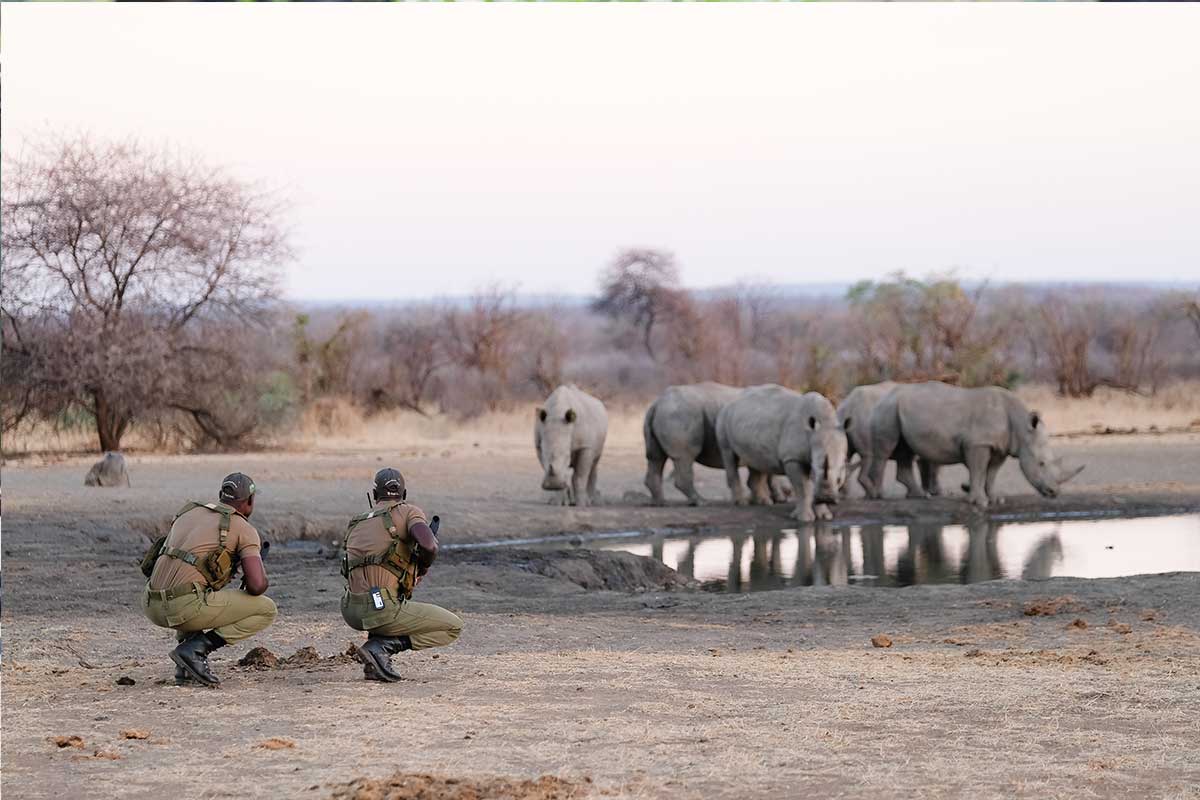Malilangwe’s anti-poaching strategy
Malilangwe’s anti-poaching strategy is underpinned by seven areas of management focus: leadership, intelligence, funding, recruitment, training, strategic deployment, and community engagement. Each is critical to the proper functioning of the security unit, but we believe leadership, intelligence, and funding to be the most important.
Leadership
Malilangwe’s leadership style is a critical determinant of staff loyalty, which is directly linked to our anti-poaching success. In conjunction with elite-style training, the leadership culture exemplifies personal integrity and respect by treating all people with appropriate dignity, genuine concern with the wellbeing of staff and families, whilst also demanding high standards and adherence to a strict code of conduct. The work environment is infused with a mixture of empathy, teamwork, camaraderie, accountability, and discipline and also encourages responsible personal behavior beyond the workplace. Adoption of a responsible attitude often leads to an improvement in the quality of life, making staff proud of their achievements and determined to work to the best of their ability. This generates respect for staff amongst their peers, with new recruits striving to emulate the achievements of established employees, which further elevates their status and loyalty.
Intelligence
Intelligence switches anti-poaching activities from reactive to proactive mode. It is better to engage poachers before they make contact with rhinos than to try to apprehend them after a rhino has been killed. Intelligence makes for safer operations, and if successfully acted upon, it increases the reputation of the unit. Malilangwe has a strong focus on intelligence, directing considerable effort and resources towards acquiring and managing informants and following up on information. This has paid off, with security being pre-warned of 90% of threats. This greatly increases the probability of successful arrests.
Funding
Protection of ecosystems, with all their interconnected elements, comes at a significant financial cost. The bulk of expenditure at Malilangwe goes to paying salaries, with the remainder being spent on fuel, equipment, rations, vehicles, training, and informants. Additional technology is a secondary consideration.
Recruitment
Careful recruitment of the correct personality type for the job is essential because low staff turnover is vitally important for the success of anti-poaching operations. Malilangwe handpicks potential recruits, aged 18 to 25 years, from well-respected families that live within 25 km of the Reserve boundary. To avoid nepotism, all established staff are consulted during the recruiting process, and consensus must be reached before a candidate is included. The pool of potential recruits is then filtered over the selection course.
Training
The bulk of training takes place during an arduous 6-month selection course which also provides succession planning for an intelligence unit and the quick reaction team. Recruits are equipped with basic scouting abilities, physical training, weapons training, GPS and radio etiquette, first aid and fauna, and flora education.
Strategic development
A quick reaction team (QRT) based close to Headquarters is tasked as a rapid reaction force for any incident, the role of the QRT is also to assist government authorities with off-property investigations, locate rhinos that are seen infrequently, and visit local communities to forge relationships. Every three months, week-long refresher courses are undertaken to maintain morale and fine-tune skill sets. This includes fitness tests, tactical training, patrol appraisals, recreational activities, and the opportunity to discuss operational opportunities, company policies, or any personal concerns.
Community engagement
Malilangwe has been striving to improve the welfare of its surrounding communities since the formation of the Reserve in 1994. These programs continue to forge a strong relationship between Malilangwe and its neighbors, and the long-term employment of over 300 staff from the surrounding communities has an additional positive effect. These staff members are Malilangwe’s eyes and ears beyond its boundaries and there have been instances when employees have passed on information concerning poachers. A consistent, strategic approach has also resulted in zero snaring on the Reserve over the past eight years. The scouts’ quiet confidence, discipline, and committed vigilance continue to ensure the ongoing preservation of all species across this pristine environment.








